The future of reproductive justice with Hilary Pennington and Dr. Herminia Palacio

Transcript
HILARY PENNINGTON: Hi, I’m Hilary Pennington. Welcome to the third conversation in our live “On What Matters” series. I am a middle-aged white woman wearing a flower dress, sitting in front of a white wall. I have very short hair and I am going to be talking today about advancing reproductive health and justice in the United States and globally with Dr. Herminia Palacio. And Herminia, would you please introduce yourself?
DR. HERMINIA PALACIO: Thank you very much, Hilary, for welcoming me to this conversation. I am Dr. Herminia Palacio. I am an internist by training, although I don’t see patients anymore. I’ve had the good fortune of being a clinician for many years and then working in governmental public health, and now really the tremendous opportunity and privilege to serve as a president and CEO for the Guttmacher Institute, which is a think tank that really focuses on research for impact for policy impact on sexual and reproductive health and rights.
HILARY PENNINGTON: Thank you so much for that. And we’re going to just start out with a very short video about the work of the Guttmacher Institute.
DR. HERMINIA IN VIDEO: The time is now. We can’t wait. We need you. We are in the middle of a global pandemic, an economic crisis, and racial reckoning. Here at Guttmacher, we do science. We study how laws affect people’s abilities to get reproductive care, to get contraceptive care. We provide the evidence that policymakers need to make good decisions. We provide the evidence that advocates use to mobilize communities to fight for justice. We provide the evidence. Facts to dismantle all of the misinformation. Facts you can trust. Access to abortion care can’t wait. Access to contraception can’t wait. Our youth having access to essential sex ed can’t wait. You’re the critical link. We can’t do this work without you. Will you make a donation today? This just can’t wait.
HILARY PENNINGTON: Thank you. So let’s get started, and let’s get started with the obvious question. You know, the overturning of Roe is a loss for all of us, but it is going to have a particular impact on specific communities; people of color, people with disabilities, gender non-conforming people, and Indigenous communities. And could you talk a little bit about what that impact is likely to be and also why community-centered research can help us document the impact?
DR. HERMINIA PALACIO: Thank you, Hilary. That is such an important observation and an important question, and I really welcome the chance to talk about it a little bit. I’m going to begin by talking about it from a personal perspective because, as you’ve highlighted, there are particular communities that will be impacted more than others, and this is not accidental. It is the same communities that suffer multiple oppressions by both policy and practice. And it’s my communities. It’s, you know, people of color. As an Afro-Latina daughter, first-generation daughter of immigrants, I understand how this plays out in my own family. And I’ll begin with an anecdote, because as Roe fell in the Supreme Court decision, I recognized that I was sort of sandwiched in between my mother and my adult daughter and my mother, a new immigrant, newly married here from Cuba, became pregnant. She was a peace worker in the New York City Garment District. Really, you know, the immigrant story, trying to make a living. And with that pregnancy, she experienced a medical condition, hyperemesis. She was really vomiting all the time. It was debilitating and she just couldn’t afford not to work. She couldn’t afford it. Her family couldn’t afford it. And she got an abortion because an abortion is what she needed to do to survive. It’s what she needed to do to make sure that her family survived. But she had to do it at a time before Roe. She had to do it at a time where she, in many ways, had to risk her life to survive. And now fast-forward, and while I enjoyed the legal protection of Roe throughout my reproductive years, I now have a 30-year-old daughter for whom that legal protection at the federal level has been stripped. And it’s very sobering to think about those impacts, for so many. We forget that, number one, abortion is a really common experience. It’s part of health care. It’s part of the normal life of women, of people, and families. It’s part of the most intimate decisions that people make about how to move forward, whether to have children, when to have children, how many children to have, how to be a parent. And our legal structures can either oppress or they can protect. And unfortunately, we see a lot of oppression happening right now.
HILARY PENNINGTON: Yeah. It’s really scary. And, you know, I am so struck by the fact that while the U.S. is moving backwards on reproductive rights, many, many other countries, including culturally conservative countries around the world, are moving forward. You think about in Argentina or Colombia or Mexico or Ireland. And so I’m curious, you know, as you look and you work globally, what lessons do you think we can learn from them about how they organized and framed those issues? And then, you know, conversely, it’s one thing to win a legal right and it’s another thing for that right to actually be real for people in how they experience healthcare services. So I’m also interested in what cautionary lessons and advice you would give to them about what it means to make a legal right real. But maybe let’s start with what we could learn from them.
DR. HERMINIA PALACIO: Sure. You know, I think one of the things you began with, what we can learn from them, which is that, in fact, progress can be made and that there can be liberalization of these laws, really through incredible combination of grassroots on-the-ground activism with powerful social movement, changing of sort of societal norms, and with the tools of legislation and litigation. Right. It takes all things. There’s not a single magic bullet. And I think one of the things, one of the lessons is being particularly attentive to sort of what the geopolitical environment that you’re in and being both strategic but also being opportunistic in terms of being able to secure some wins, even when it’s unexpected and, in fact, being relentless. So I think that there are, there are lessons learned. One of the things that we have to learn is that we can’t take these rights as a forever thing. Right. I think there are many communities who saw the fragility of the Roe decision and were disappointed and shocked, but in some ways not surprised. Right. There was the writing on the wall in many ways. There was a long effort, both at state legislatures and federal, at a federal level to sort of rescind this right. But your second point is critically important, which is that the right in and of itself doesn’t guarantee access, right? And that there are ways to constrain access even in the face of a right. And thinking about the Hyde Amendment here in the United States as a way to legislatively constrain access for people of low economic means, mostly Black and Brown people who theoretically had the right to secure a legal abortion but didn’t have the means. Legal abortion is expensive. We had laws that specifically prevented the use of Medicaid to support those abortions so we can constrain people’s realities in practice, both by legislation, by regulation, and just by societal practice.
HILARY PENNINGTON: You know, I think that’s so, so important, too, as you were saying before, like playing the long game and understanding how hard it is to secure these rights. And it leads me to another question for you, which is, you know, for me, one of the things that’s very inspiring right now about the reproductive rights movement here and elsewhere is the ways in which organizers are linking it to other movements, other justice movements, whether it’s racial justice or immigration and, you know, trans rights. So, and I’d love to hear you talk a little bit about why you think that’s happening and, also, you know, just what the implications are for the long game.
DR. HERMINIA PALACIO: It’s a critically important question, and I think it’s important to recognize the history of how that came, how that’s happening, and why it’s happening, because it’s not happening overnight. And I think we can credit a number of Black women who gathered together in the early 1990s to really put forward a framework, a reproductive justice framework, which wasn’t just about abortion as a right. It was really a framework that was about the humanity and the dignity of people to choose when and if to become a parent, when and if to become pregnant, when and if to give birth, and to be able to parent with dignity, and parenting with dignity meant to have the economic ability to parent with dignity. It meant having the social structures and the social support, it meant having the job security, having the healthcare access, having the education for your kids. It was very much as, you know, as I think about sort of my career in public health, it was very much a framework that incorporated those principles of the social determinants of health without using that terminology. But it was very much a justice model, not just a health model, not just the rights model. And inherent in that justice model is an understanding that the oppression of reproductive care has roots in racism. Right. Think about slavery. It has roots in controlling women’s bodies. It has roots in seeing women as vehicles to produce children for free labor. It has roots in the way that we separated Indigenous children and sent them to, quote unquote, “Christian” schools against the will of the community. It has roots in the way we did forced sterilization of people that we decided were not competent to have children. So again, we can’t begin as if the failure of Roe was day one. Right. We have a long history in this country of oppressing people of color around all manner of issues, including their reproductive decisions.
HILARY PENNINGTON: And their fundamental dignities, as you were just describing.
You know, I want to shift a little bit and just ask you a question that brings it a little bit more personally to you, which is just to talk a little bit about your own journey. You have had such an amazing professional and personal story. How did you come to the Guttmacher Institute?
DR. HERMINIA PALACIO: I would say that in many ways I came to Guttmacher in full circle, in terms of my professional career. So I really am a little girl from the Bronx who really, in one generation, as I said, my parents came over from Cuba, they did not have the opportunity for education. So in one generation, you know, they have a daughter who is a physician and a daughter who is a lawyer and unfortunately, a son who died at age 12 when he was hit by a car. So all of the family joys and sorrows that are, that are so much part of the human condition. As a young physician, I began my work in the height of the HIV/AIDS epidemic. I’m a primary care physician by training, but I ended up working with HIV/AIDS patients for the overwhelming majority of my years of clinical practice. And in those early days, they were formative years for me, personally and professionally, and I had the sobering, extraordinarily sad but formative experience of having to sit with mostly young men, but some young women who transitioned from life to death because I had very little to offer them but the art of medicine, because there wasn’t much science of medicine available at that time. And the science caught up with the art over time. But it allowed me to see how stigma got translated into people’s lives. Stigma around the most intimate decisions people were making about who they loved, stigma around who they had sex with, how policies could create fear and ostracize people who were just human beings trying to get through life the way the rest of us was and how laws could be fashioned in a way that was cruel and punitive, such as trying to criminalize women who got pregnant while they were HIV positive. These are things that we’ve seen before. We’ve seen the labeling of people as “other” before. And so while my career took me through many things, including, as I said, you know, being, really working, changing from being just the physician on a one-on-one basis to being a public health practitioner in which really, I was a doctor for entire communities in some ways. Coming to the Guttmacher Institute, where we’re, again, sort of facing a stigmatization and an assault and an otherizing of people making the most intimate human decisions possible. It feels familiar. It feels like coming home. And it certainly inspires my passion to be all-in in this fight.
HILARY PENNINGTON: Our conversations about your experiences, and you were really there at the front line in San Francisco, you know, early, early years. I think your trajectory across all of those makes me want to ask you a final question before we go to the questions we’ve gotten from the audience. And that just is: What gives you hope?
DR. HERMINIA PALACIO: I would say that really, what gives me hope in those moments where, you know, it can feel, it can feel difficult when you look around and you see so many things being rolled back is, I have to remind myself, we began talking about some of the history of—especially in this country—of oppression. And it reminds me that progress is never linear, that people have actually bled and died to make even some of the advances that we have and that it’s our obligation, it’s our privilege to stand on their shoulders. But it’s our obligation to stand tall on their shoulders, to stand tall and continue the fight. And the fact that progress is always met by backlash. And so sometimes, I remind myself that the fierceness, the toxicity of this particular backlash is actually a reflection of how much progress we had been making. And it gives me hope that we can once again sort of regain that momentum, that we must regain that momentum and that, you know, we have to be here for the long game, the people coming up behind us.
HILARY PENNINGTON: Yes. Thank you for that. And we’ve got just a little time more and we’re going to turn to questions that we’ve got. We’ve gotten a lot of questions from the audience, and I’m going to just go to two and I’m going to start with one from Vivian, who wants to know: How will the rising use of medication abortion play out in the face of increasing and severe restrictions?
DR. HERMINIA PALACIO: Well, you know, I appreciate that question from Vivian, and the answer is that it’s complicated, right. So I think that medication abortion is another critically important tool to allow folks to do, you know, self-managed abortion. It expands the number of options that people have. But we also need to make sure that access is only as good as access to other services, right? If you’re talking about immigrant populations or other populations that may historically already have limited access to routine health care, medication abortion may not be a panacea because, number one, they may not even be aware that it’s available. And number two, they may have limited access as they have limited access to other instances. Three is it’s not going to be the only choice. There are many people who actually will want to have surgical abortion. And we need to make sure that eliminating surgical abortion does take off options off the table for people for whom medication abortion may not be the answer. And we can’t take our eyes off the ball because the same legislators who are trying to render access to surgical abortion all but impossible are busy trying to change state pharmacy laws to make it much more difficult to access medication abortion. So I think it’s an opportunity, but it’s not a silver—it’s not a magic bullet.
HILARY PENNINGTON: Yeah. Well, and I think that just goes back to what you have been talking so eloquently about: a holistic access to care and dignity. So we have one more question. Time for one more from Elizabeth, who wants to to hear you talk about the potential impact of extradition laws that seek to criminalize medical professionals like you, and abortion seekers who leave their states to provide or to get access to care.
DR. HERMINIA PALACIO: Well, you know, I’m not going to speak to the legal aspects of the laws, but I can certainly speak to being a clinician and being a clinician in an environment where some of the things that we were recommending could have risk. So number one is, I would say that there are physicians who have been at the forefront of social justice movements. In fact, you know, if you think about some of the history of public health internationally, really it has, many have been led by physicians who understood that the social determinants of health, the conditions in which people live, are what allow people to be healthy, what allow communities to be healthy or not. So I think that there will be physicians who are in the fight, but the legal risks are real. And I think that the consequences aren’t just that somebody might choose to relocate to another state if they’re a practicing OB/GYN, for example, who performs abortion. I think we’re going to see downstream consequences that some of the writers of this legislation did not anticipate, because I think some of the writers of this legislation will not be crying if abortion providers leave the state. I’m not sure that they understand that there are some other universities in their states may risk accreditation if they can’t sort of provide the full spectrum of training, that there are medical students and residents who may be making choices about where to practice, even if they’re not going to be abortion providers. They may be making principled choices about what states they’re going to move into or not, because either ideologically or because they themselves don’t want to live in a state that has restricted access. So I think that we may be seeing long-term consequences in terms of a real shift in where nurses, physicians, pharmacists and a host of medical providers aren’t. And I’m not sure that some of the hasty passing of these criminalization laws really foresaw what I think is going to be potentially coming down the pike.
HILARY PENNINGTON: Such a powerful way of also thinking about what it means for the law in the long game, the long-term. I just want to thank you so much for making the time for a conversation like this. It’s been fantastic to talk with you. And I also want to thank everyone who tuned in to listen to the conversation. And just to remind you, there will be future conversations coming up with social justice leaders from South Africa and Mexico and the U.S., and you can stay tuned for more information about how to tune in to them. But most especially, Herminia, to you, thank you so, so much.
Accessibility Statement
- All videos produced by the Ford Foundation since 2020 include captions and downloadable transcripts. For videos where visuals require additional understanding, we offer audio-described versions.
- We are continuing to make videos produced prior to 2020 accessible.
- Videos from third-party sources (those not produced by the Ford Foundation) may not have captions, accessible transcripts, or audio descriptions.
- To improve accessibility beyond our site, we’ve created a free video accessibility WordPress plug-in.

Welcome to “On What Matters,” a conversation series between our executive vice president Hilary Pennington and social justice leaders on the frontlines of change.
This episode features Dr. Herminia Palacio, president and CEO of the Guttmacher Institute, a research group that focuses on sexual and reproductive health and rights.
Dr. Herminia Palacio talks with Hilary about Roe v. Wade and how community leaders, politicians, and doctors can band together to advance reproductive justice around the world.
As she says, “I remind myself that the fierceness, the toxicity of this particular backlash is actually a reflection of how much progress we had been making, and it gives me hope that we can once again regain that momentum—that we must regain that momentum.”
Learn more about our work on gender and reproductive justice at: fordfoundation.org/news-and-stories/videos/the-future-is-hers/
Learn more about the Guttmacher Institute at: guttmacher.org
Other videos in this series
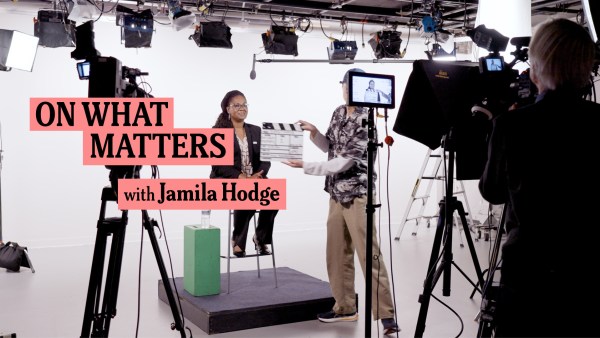
Advancing Community-Based Violence Intervention With Jamila Hodge and Sarita Gupta
Jamila Hodge of Equal Justice USA and Sarita Gupta of the Ford Foundation talk about community-based violence intervention and the importance of promoting a trauma-informed public health response to violence. Jamila explains how, if we want to address institutional racism, we must address the root causes of violence and center those most impacted.
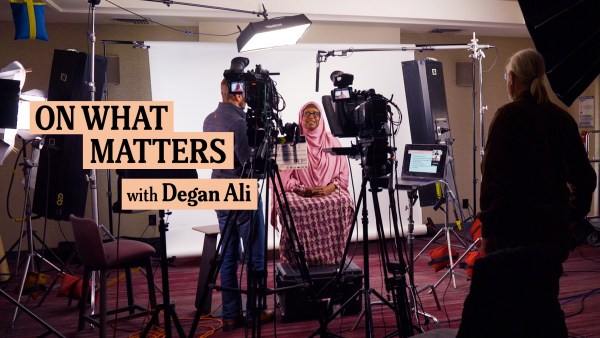
Decolonizing Humanitarian Aid With Degan Ali and Martín Abregú
Degan Ali and Martín Abregú talk about shifting to locally led development and decolonizing aid. Degan shares why we must rethink current structures of providing aid and have local civic society organizations play a stronger and more strategic role in global policy debates.
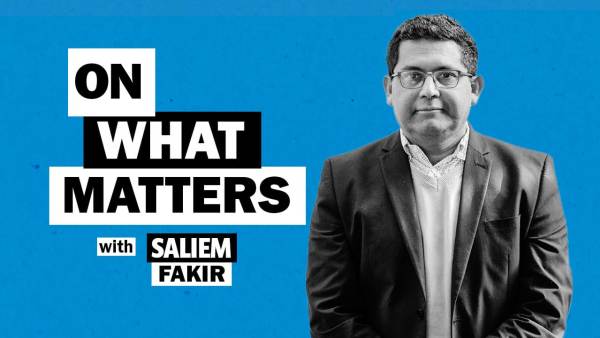
Working Towards a Truly Just Energy Transition with Hilary Pennington and Saliem Fakir
Saliem Fakir, the founder and executive director of the African Climate Foundation, the first grantmaking foundation in Africa focused on furthering solutions for sustainable climate development, joins Hilary Pennington to discuss the urgent need to address climate change and South Africa’s promising Just Energy Transition Partnership.
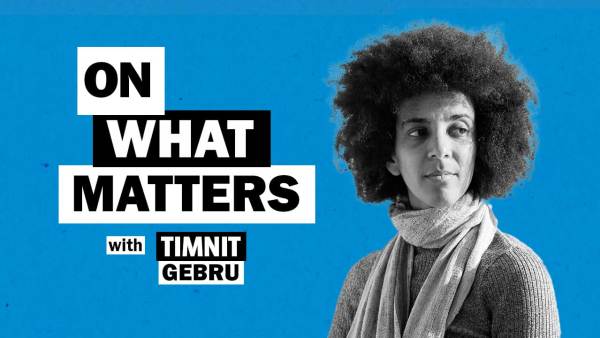
Making AI systems more just with Hilary Pennington and Dr. Timnit Gebru
Dr. Timnit Gebru, founder and executive director of the Distributed Artificial Intelligence Research Institute (DAIR), joins Hilary Pennington to discuss how an inclusive and collaborative approach to creating AI systems can address the uneven benefits and harmful impacts of technology on society.
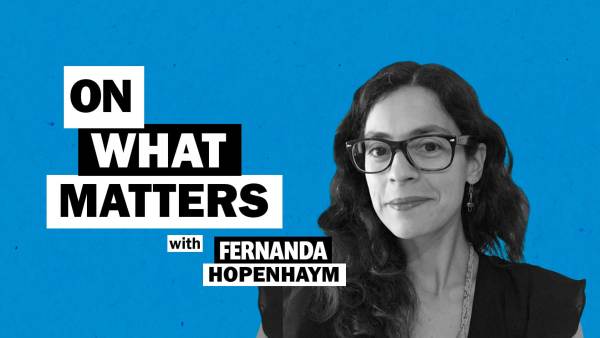
Holding corporations accountable with Hilary Pennington and Fernanda Hopenhaym
Fernanda Hopenhaym is the co-executive director of the Project on Organizing, Development, Education, and Research (PODER), a nonprofit in Latin America that pushes for corporate accountability for human rights and environmental abuses. Fernanda and Hilary discuss how to keep businesses ethical and transparent by using feminist and human rights organizing strategies.
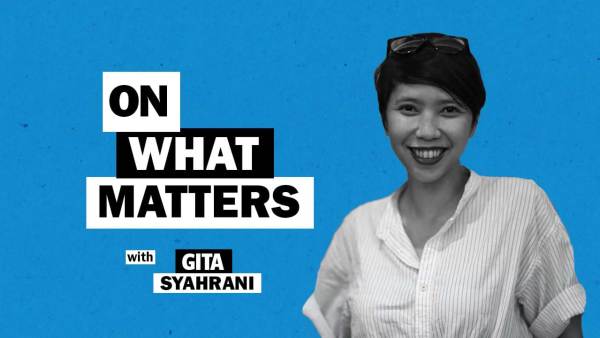
Saving forests while eradicating poverty with Hilary Pennington and Gita Syahrani
Hilary Pennington talks with Gita Syahrani about how engaging Indigenous and local communities in sustainability efforts can lead to greater economic mobility for them. Her work shows how civic engagement at the district level can have global impact.
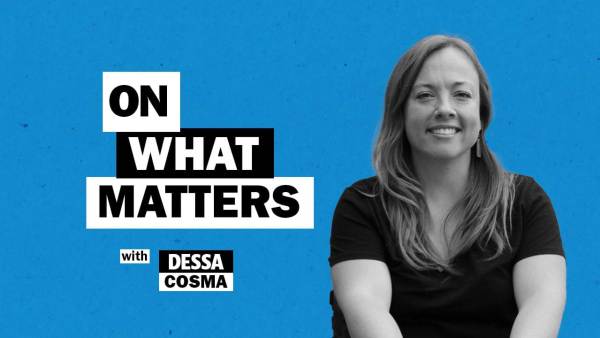
Reimagining how we think about disability with Hilary Pennington and Dessa Cosma
Hilary Pennington talks to Dessa Cosma about disability justice and inclusion. They discuss the importance of using intersectional approaches to activism and how to restructure the economy to be more just for disabled people.
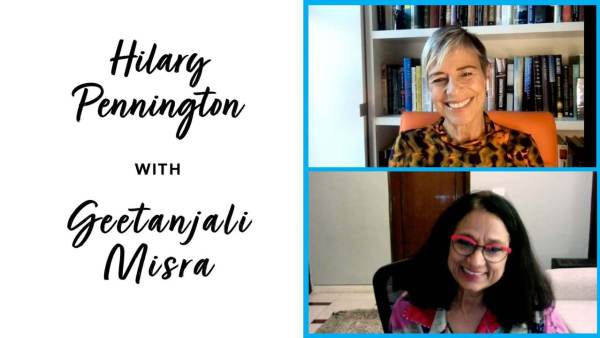
The future of feminism: Hilary Pennington with Geetanjali Misra
Geetanjali Misra has bore witness to the evolution of feminism both on the ground in the U.S. and India and in her work as an activist. Seeing patterns change and movements shift, she speaks about the importance of intersectionality in building a more inclusive feminist future.
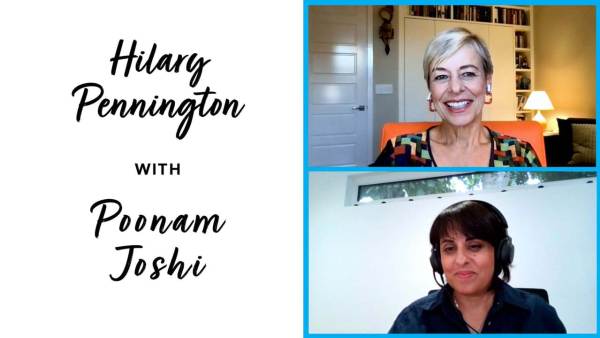
COVID’s impact on civic space: Hilary Pennington with Poonam Joshi
Civic space is essential for democracy. It allows people to participate in society and communicate freely and without discrimination. But, according to Poonam Joshi, director of Funders’ Initiative for Civil Society director, there are threats that need to be addressed before we solidify the civil society we want in the future.
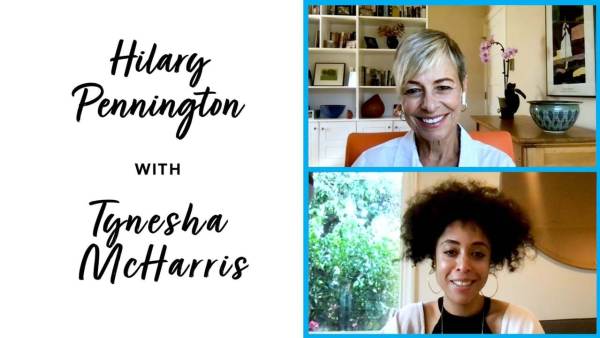
Funding Black feminism: Hilary Pennington with Tynesha McHarris
Black feminist movements are advancing social justice globally. Tynesha Harris, one of the founders of the Black Feminist Fund, aims to channel more support to movement leaders and create a model of true solidarity. Racial, gender, and class injustice need an intersectional approach that acknowledges the inherent value of Black women.

Philanthropy and environmental justice: Hilary Pennington with Laura García
When it comes to climate change, time is running out. But communities all over the world are working on solutions, and philanthropy needs to center their ideas and perspectives to win this fight. Laura Garcia, CEO of GlobalGreen Grants Fund, shares how funding grassroots movements can address challenges at the intersection of social and environmental justice.
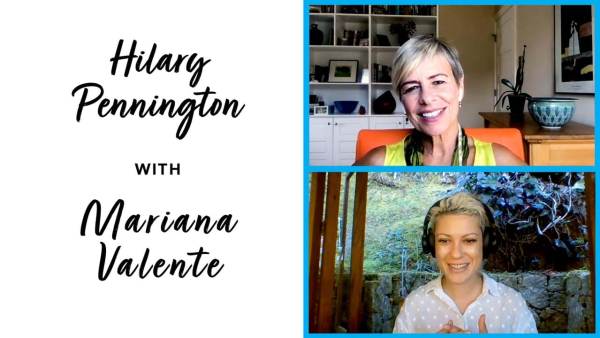
Technology and gender: Hilary Pennington with Mariana Valente
The internet is a force for good, but it must be guided by fundamental human and privacy rights and offer social protection, said InternetLab director Mariana Valente. In this way, technology can advance equality and, with the right policies in place, be used as a tool for advocates to organize.
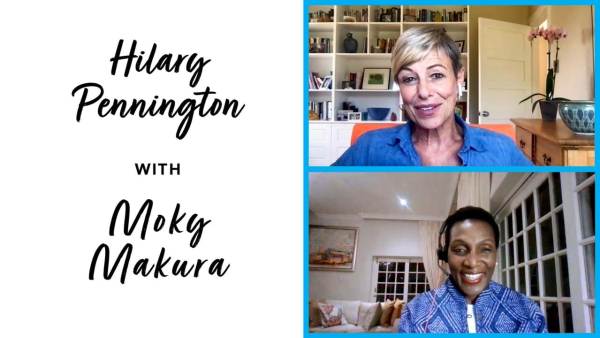
The power of storytelling: Hilary Pennington with Moky Makura
For too long, Africa has been defined in the media by stereotypes and oversimplified narratives. With Ford’s support, Africa No Filter is disrupting these narratives by empowering storytellers helping to create a nuanced, balanced view of the continent and an equitable, inclusive way of how to partner with it.
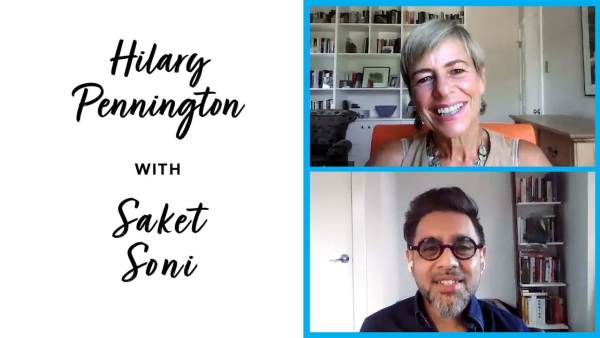
What essential workers need right now: Hilary Pennington with Saket Soni
Disasters present the opportunity to bring us together and give us the chance to reevaluate our priorities and ask what’s really important. Labor organizer Saket Soni sees COVID-19 as a prologue to other threats, like climate change. He says disaster responses need to focus on strengthening essential workers.
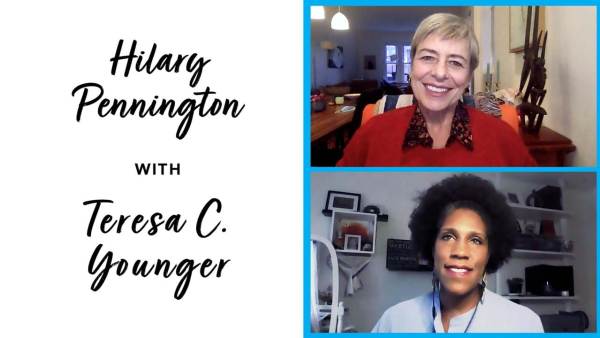
Philanthropy and Black women: Hilary Pennington with Teresa C. Younger
Social justice organizations led by women of color often receive less funding. Teresa C. Younger, CEO of the Ms. Foundation, explains why philanthropy needs to center women of color to address systemic racism and uplift women and girls of color for a more just future.
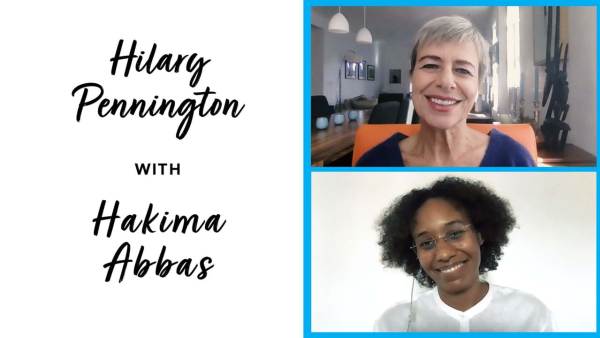
How young feminists are organizing: Hilary Pennington with Hakima Abbas
COVID-19 has impacted the way we work, but it also exacerbated gender inequality in the workplace. Hakima Abbas, of the Association for Women’s Rights in Development, believes we can prevent any further damage by including feminist leaders across the board in devising solutions.
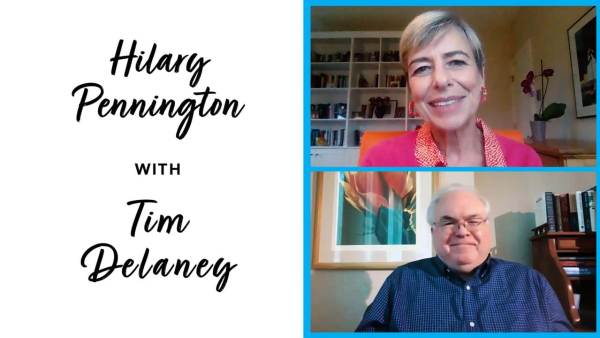
How nonprofits make an impact: Hilary Pennington with Tim Delaney
Over one million nonprofits exist in the United States, but Tim Delaney, the CEO of the National Council of Nonprofits, has an idea to make them even more impactful. To him, bringing social justice groups together can transform philanthropy for the benefit of all.
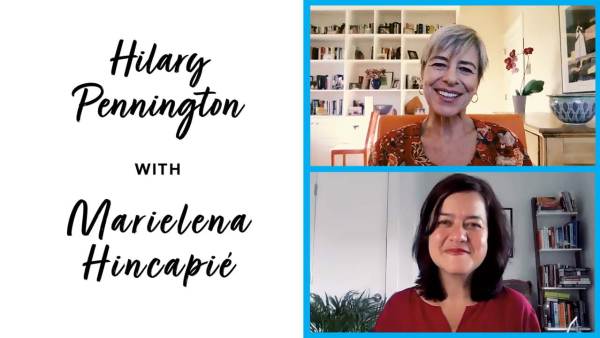
Immigrants are essential: Hilary Pennington with Marielena Hincapié
Immigration has been used as a weapon to divide the United States. The National Immigration Law Center aims to help the country understand that immigrants are not only important members of our communities and essential workers, but they are also valuable political constituencies needed to make American democracy work.
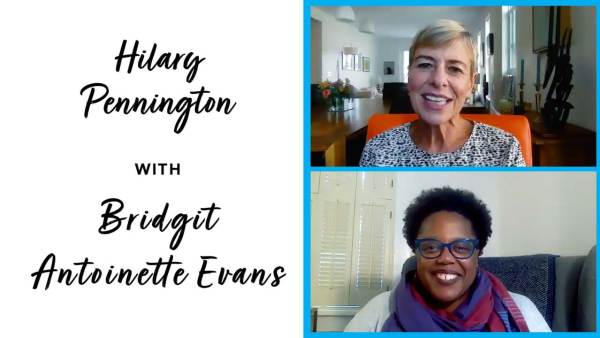
Social justice and pop culture: Hilary Pennington with Bridgit Antoinette Evans
Pop culture plays an important role in advancing social justice. Bridgit Evans of Pop Culture Collaborative produces cultural strategies that build on points of connection to ensure policy changes are not just symbolic. By finding commonalities through culture, she believes we can create a world where everyone feels they belong.
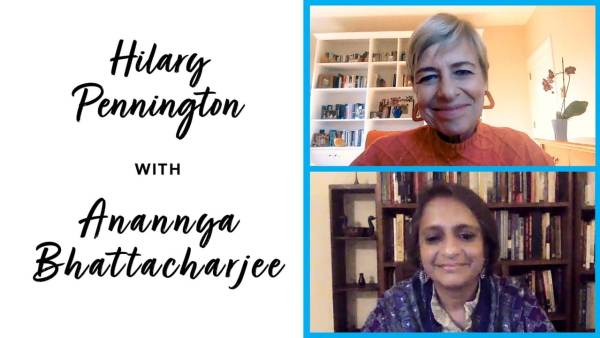
Global work needs to be local: Hilary Pennington with Anannya Bhattacharjee
While the labor movement has worked to improve the lives of garment factory workers globally, activist Anannya Bhattacharjee advocates that solutions need to start locally and come from the ground up to have a significant impact on workers’ lives.
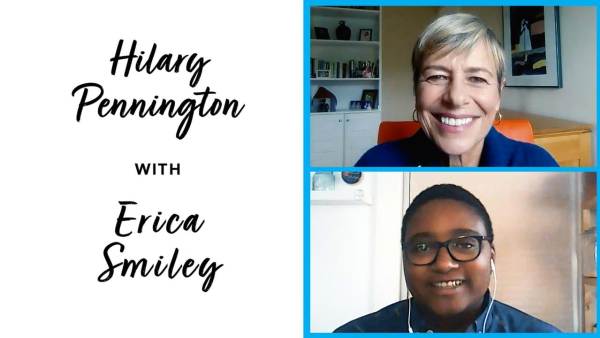
Essential workers are the economy: Hilary Pennington with Erica Smiley
The COVID-19 pandemic has dramatically changed the way we as a world work. As we face this inflection point, Erica Smiley, executive director of Jobs With Justice, believes people—especially essential workers—need to have the right to come together collectively to organize and negotiate their conditions to build a global economy that works for all.

The urgency of this social moment: Hilary Pennington with Eric Ward
We need to dismantle racism to make inclusive democracy truly possible. Eric Ward of Western States Center believes smaller movements can help support bigger waves of change. From creating cohorts of emerging leaders to encouraging small group interactions can help protect democracy and put an end to white supremacy.